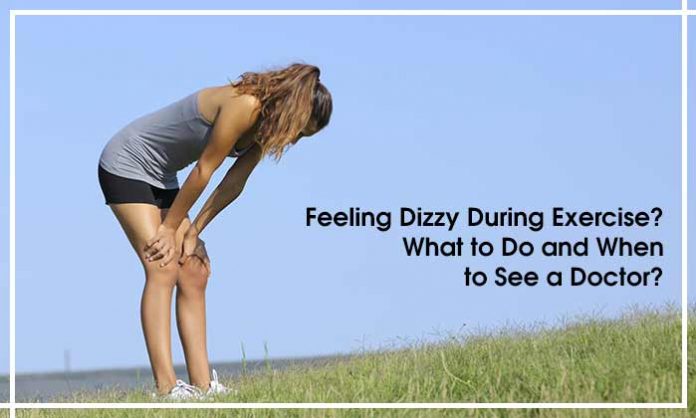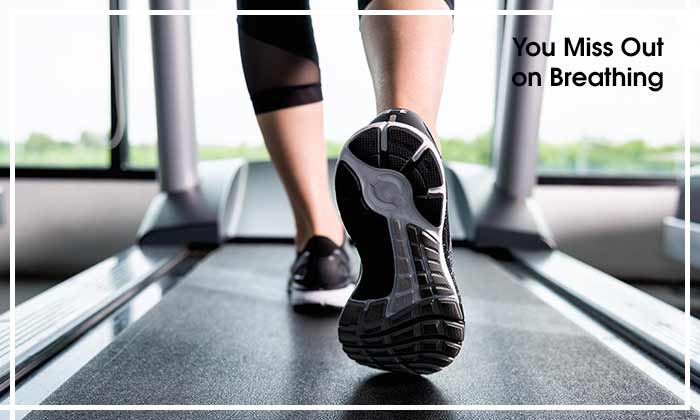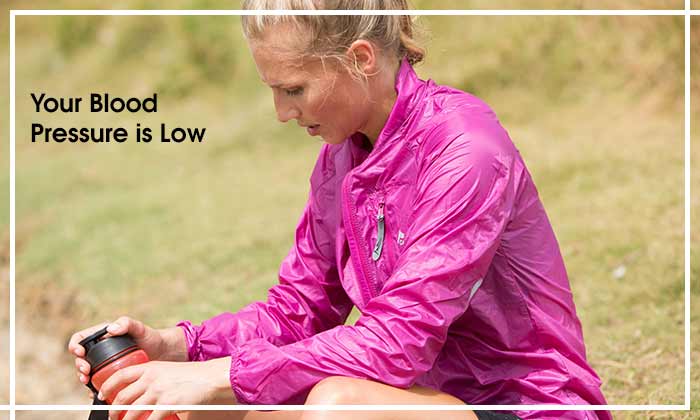
If a recent sweat session has left you tottering, it is obvious for you to get concerned. Dizziness after workout/exercise does not indicate anything serious. It just happens due to dehydration or improper breathing. Been through this? So, read on to know what you must do to stop it and why it basically happens.
You Miss Out on Breathing:
While exercising, muscles consume too much of oxygen. The heart rate and breathing increase so that there is proper transportation of oxygenated blood to the muscles. If you do not breathe while exercising or afterwards, the heart may not pump sufficient oxygenated blood to the brain. Dizziness happens when the brain does not get enough oxygen [1].
What You Must Do?
Sit down on the floor. After taking three deep breaths, slowly exhale. Repeat this for three to five minutes before slowly standing up.
How to Prevent It?
A lot of people hold their breath during some workouts like core exercises. You have to strike a happy medium between holding your breath and keeping your core tight. More you work on it, easier it will be for you.

You Engage in Strenuous Exertion:
Overexertion is generally seen when there is group exercises or team training as there is a feeling of competition and each one wants to put their best foot forward. But it can happen anytime and anywhere. If you push yourself too hard, it might cause your blood pressure to decrease and result in dehydration. This can give the feelings of dizziness, light headedness and fainting.
What You Must Do?
If you experience dizziness, cool yourself down, catch your breath. This will slow down your heart beat. Drink water to replenish the depleted muscles.
How to Prevent It?
If you do it in excess and quickly start doing strenuous exercises, you may do more harm than good. Push yourself but don’t overdo it. You could take your workout sessions a notch lower. Gradually increase the intensity till you achieve the desired results.

You Are Dehydrated:
When you lose more water than what you are consuming, dehydration sets in. While exercising, the temperature of the body shoots up. In order to cool down itself, the body produces sweat. So, you lose too much water while exercising specially if you are doing it on a hot day. Apart from dizziness, other signs that you may see are dry mouth, lightheadedness, tiredness and thirst.
What You Must Do?
It’s a no brainer. Drink Water! Lots and lots of water!
How to Prevent It?
Carry a water bottle with yourself wherever you go and drink enough water. Have water breaks between your workout sessions. Drink it after a certain number of rotations. Also make sure that you have enough water which will sustain you through workouts.

Your Blood Sugar Is Low:
During exercise, muscles consume more energy than usual. In the first 15 minutes of exercise, the body uses the glucose in the blood and muscles for sustaining you. After it gets depleted, there is drop in the levels of blood sugar. The body derives the sugar from the liver. Brain needs glucose to function optimally. When it gets starved for oxygen, there may be feelings of dizziness. Other signs are sweating, shaking, headache, tiredness, confusion.
What You Must Do?
It can be cured by snacking a bit like eating a banana. If you want quicker results, drink a glass of juice which has fructose, a natural glucose that can be easily and quickly absorbed by the body.
How to Prevent It?
In order to prevent dropping of blood sugar levels during workouts, you should have glucose reserves in plenty from where it can be drawn. Snack on whole grains or proteins an hour before working out.

Your Blood Pressure is Low:
Technically speaking, your blood pressure hits a low about 30-60 minutes post exercise [2]. There may be a more rapid drop in some people. It can happen with any type of exercise. But it can be seen more commonly when you are not able to cool down after a workout. While exercising, the muscles and heart work in overdrive. They pump the blood so that the muscles can get the oxygen required by them. When you stop exercise all of a sudden, the muscles and heart go back to their normal pace. Blood vessels may take longer to catch up. So oxygenated blood flows to the brain slower than usual. Again, when there is not enough oxygen supply to the brain, there may be feelings of dizziness and light headedness.
What You Must Do?
If you get feelings of fainting and lightheadedness, sit down with your head between your knees. This will supply the oxygenated blood to the brain.
How to Prevent It?
It may not be possible every time to prevent the drop of blood pressure. Dehydration can aggravate the problem so keep yourself hydrated. Eat well before working out and have a healthy diet. If you are on blood pressure medicines, speak to the doctor about the signs. They may prescribe some other medicine.

If I’m Pregnant and Get Dizzy?
If your workout has suddenly started causing you dizziness, stop doing it until you get to speak to your doctor. Pregnancy may not affect your workout, dizziness may be caused due to some of the below mentioned conditions.
In some of the cases, dizziness could happen due to preeclampsia or anemia (iron deficiency). Report to a doctor if you observe
- Swelling in hands or on face
- Blurred vision
- High Blood Pressure
- Continued headaches

The doctor will run the tests to ascertain what is causing the symptoms and if it is affecting the pregnancy. The next steps will also be advised accordingly.
When Should You See a Doctor and Other Health Care Provider
If you modify your routine but still experience dizziness, make an appointment with a health care provider or doctor. Your symptoms could be indicative of some underlying issue. The doctor will conduct a physical exam to know how the lungs and heart are functioning. They may also order blood tests to check nutritional deficiencies, diabetes or infection.




